Hi, it’s Alexandre from Eurazeo (ex. Idinvest). I’m investing in seed & series A consumer and consumer enablers startups all over Europe. Overlooked is a weekly newsletter about venture capital and underrated consumer trends. Today, I’m sharing the most insightful tech news of December.
For 2021, I wanted to pick one piece of news per day and write a short comment about it. I want to talk about something that strikes me. Something that happened in the tech ecosystem. Here is the issue for December!
Please note that the date picked for each event is not always the exact event date but the one at which I decided to write about the event.
Wednesday, Dec. 1st: Partech raised a $750m second growth fund. Partech Growth Fund I was raised in 2016 ($460m fund) and invested in companies like Amboss, M-Files, NAKD, Sendinblue, Ecovadis, Made and Brandwatch. Fund II did its first investments in companies like Billogram (invoicing & payments platform), Rohlik (online grocery supermarket), Rouje (D2C fashion brand), Skello (SaaS for work scheduling)and Studoc (note-sharing platform for students). It will invest in 12-15 companies with tickets between €20m and €70m. - Partech, Techcrunch
Thursday, Dec. 2nd: Index led a seed round into Jump. Sequoia led a seed round into Upway. The 2021 French tech ecosystem is on fire It's hard to top Index and Sequoia announcing a new seed investment on the same day. - Index on Jump, Tech.eu on Upway, Techcrunch
Jump is an OS offering to freelancers and gig workers access to permanent contracts and associated benefits (invoicing, payroll, benefits, compliance and accounting tools).
Upway is a marketplace for second-hand electric bikes launched by former Uber top executives. Upway has a similar operating model than Carvana and Cazoo in the automobile space with warehouses in which they gather and repair bikes before sending them through parcels all over France.
Friday, Dec. 3rd: I read Messari's crypto theses for 2022 which is an annual report full of insights on the crypto space written by Ryan Selkis who is the founder and CEO at Messari. - Messari
There are 3 underdeveloped areas in web3: NFT infrastructure, DAO tooling and inter-protocol bridges.
Institutional trust (NGOs, Business, Media, Government) is at an all time low and crypto is a technological answer to this decreasing trust.
$8bn had been deployed in 423 deals in Q3-21 and $17.8bn in 2021.
"Mason defined Web3 as the “paradigm shift towards a more democratized Internet” governed by the collective. Chris Dixon says Web3 gives us “the chance to upgrade networks into crypto asset centered economies, and build systems where the incentives of network owners, network participants, and third- party developers are fully aligned.”"
NFT can become a major component of our digital identity - showcasing to the world your values and sub-cultures. There is an inherent paradox within NFT communities as the NFT value will drop once it has become accessible to mainstream people because it loses its sense of exclusivity.
Fan tokens. NFT can help creators kickstart and grow their communities faster than with web 2 platforms because community members own community tokens, whose value increase as the community grows, incentivizing them to help them grow their audience.
Saturday, Dec. 4th: Ben Evans published a presentation called Three Steps to the Future on trends for the next decade with web 3 and metaverse as the hottest trends. - Ben Evans
Web 3 is described as the future of the internet (in which users create but also control the network and make money - which was not the case in web 2) and as the future of open source (with a distributed revenue generation).
Sunday, Dec. 5th: Jow's founder Jacques-Edouard (💙) wrote a great blog-post on the quick commerce category and teased a partnership between Jow and a quick-commerce player. - Jow (in 🇫🇷)
With traditional grocery online delivery solutions, you need to plan your delivery and to stay at home for a given 2-3h time-slot. With quick commerce players, these two constraints are removed.
Quick-commerce removes two barriers in the online grocery category: the delivery price and the lack of convenience of planning a delivery. Nonetheless, it remains limited to small baskets, to urban areas and to urgent needs.
When most investments in the grocery space are dedicated to the last mile (preparing and delivering the order), Jow is focused on reinventing the first mile (i.e. the purchasing experience). With Jow, consumers are inspired. They also get access to recommended recipes and products. Moreover, the purchasing experience is simplified with up to 70% of the products automatically added to the cart.
Monday, Dec. 6th: Jokr raised a $260m series B at a $1.2bn valuation with investors like Tiger Global, Balderton, GGV and Activant. It's a quick-commerce player with a strong foothold in Latam and in the US. Jokr operates 200 micro-fulfillment centers in 15 cities. It has been growing at a 15% WoW growth since inception. It will use the funding to double down in existing cities and to expand in new ones. - Bloomberg
Tuesday, Dec. 7th: Index led a $16m series A into Pepper which is an e-commerce platform for food distributors. - Damir Becirovic, Techcrunch, Yahoo
The restaurant's back-end has not received the same attention as its front-end (food delivery platform, QR-code ordering, modern POS, etc.).
"Pepper is a platform that digitizes restaurants interface with their inventory suppliers, like providers of ingredients, utensils, and packaging. Instead of having to call a distributor or wait for a rep to walk in the door with a clipboard, Pepper now enables restaurants to discover, purchase, and reorder inventory via their smartphone or computer."
Pepper is monetizing with wholesalers. They pay a monthly SaaS fee depending on the number of users and Pepper reduced the onboarding of a new wholesaler down to two months (vs. 6-12 months for competitors).
It has wholesalers selling to 25k food distributors in the US and Canada.
Wednesday, Dec. 8th: Collective raised a $8m seed round led by Blossom with the participation of eFounders. It's a platform for freelancers who team up in collectives to work together on projects. Collective helps them find new missions and manages their back-office operations (payment, marketing, admin). The company will use the funding to develop the platform and expand the team (30 recruitments planned for 2022). - Tech.eu, Techcrunch
Thursday, Dec. 9th: Lydia raised a $100m round at a $1bn valuation led by Dragoneer and Echo Street with the participation of existing investors Accel and Tencent. Lydia started as a P2P payment app and has slowly been evolving to become a financial super app with financial services like a debit card, trading or lending etc. Lydia has 5.5m users and 1/3 of French people between 18 and 35 y.o. have a Lydia account. It will use the funding to expand into other European countries and to push forward its vision of becoming the primary account for the younger generations. - Sifted, Techcrunch
Friday, Dec. 10th: Gitguardian raised a $44m series B led by Eurazeo (💙) with the participation of existing investors Fly and Balderton as well as new investor Sapphire. It’s a cyber security company building products around secret detection which are security breaches in the code. Gitguardian has quadruped its revenues each year in 2020 and 2021 with a 140% net dollar retention in 2021. It will use the funding to grow the team (100 people to be hired vs. 60 FTEs in the team today), launch new cyber products and to expand in the US. - Tech.eu, Gitguardian
Saturday, Dec. 11th: Brex's founder Pedro Franceschi wrote a paper on people who manage to scale with a startup exponential growth. - Brex
The conventional wisdom says that during periods of hypergrowth, a company will outgrow any other that hasn’t done the job before. But having seen many of our early leaders scaling through the craziest growth phases of Brex, I was never satisfied with this answer.
Perhaps a better way to think about experience is not as how many times you’ve done a job before, but instead how many times you had to change yourself in order to be successful
Reinventing your core beliefs is the silver bullet of scaling.
Reinventing your core beliefs, picking the right role models, being authentic, and listening to your feelings. That’s a lot of subjectivity.
But the biggest leap of faith of all is having faith in yourself. Things will go wrong, and you’ll feel like a failure many times. But don’t assume that you can’t scale just because you haven’t done the job before.
Sunday, Dec. 12th: Flink raised a $750m series B at a $2.1bn premoney valuation led by DoorDash with the participation of Mudabala. It’s a European quick commerce contender which started in Berlin and which is now present in 4 countries and in 60 cities. It will use the funding to keep growing in these cities either organically and inorganically. - Tech.eu, Techcrunch
Monday, Dec. 13th: Nike acquired RTFKT for an undisclosed amount to dip their toes into the NFTs and metaverse trends. RTFKT is a brand building digital NFT-backed sneakers that users will be able to wear in metaverse experiences. It's a surprising acquisition. I don't see Nike buying a company for more than $200-300m without disclosing the purchasing price to shareholders, a relatively low price for a company that has been generating cash for the past few months. In May 21, the company raised a $8m seed round led by a16z at a $33m valuation. - The Verge, Techcrunch
Tuesday, Dec. 14th: Berlin-based Vay raised a $95m series B with Kinnevik, Coatue, Eurazeo (💙), Atomico, La Famiglia and Creandum. Vay is a solution to transform vehicles into autonomous vehicles. As a first step, it will start to operate in Hamburg in 2022 with a tele-drive service in which a person remotely drives a vehicle to your door. The team has been working in stealth on this technology for 2 years. In the medium term, the idea is to gradually introduce autonomous features to reach full autonomy in the long term. - Tech.eu, Techcrunch
Wednesday, Dec. 15th: La Belle Vie raised a €25m co-led by Left Lane and Quadrille Capital. It's an online grocery supermarket targeting weekly grocery purchases and which offers 3h-home delivery or next-day delivery in the Ile de France region. It has an extra-large warehouse in the suburb with 17k available products (4k fresh products), 500 FTEs and a distribution partnership with Système U. It processes 15k orders per week. In Sep. 21, La Belle Vie also launched a quick commerce offering under the Bam Courses brand with 2.5k SKUs and 7 warehouses in Paris. La Belle Vie has been operating since 2015 with a super strong emphasis on constantly improving operations & unit economics. It will use the funding to expand in other French cities. - Frenchweb, Techcrunch
Thursday, Dec. 16th: TikTok will launch a US delivery-only food offering in Q1-21 leveraging a partnership with Virtual Dining Concepts (which is working with MrBeast and has a network of kitchens) as well as with Grubhub (for its last mile delivery network). It will start with 300 locations with the ambition to reach 1k locations by the end of 2022. Obviously, the menu will include most watched recipes on the app like baked feta pasta, corn ribs, smash burgers or pasta chips. TikTok will work together with creators to craft the menus and distribute them on the platform with a revenue share model. - Techcrunch, Bloomberg
Friday, Dec. 17th: GoPuff is rumoured to raise a $1.5bn convertible at a $40bn valuation ahead of an IPO planned in 2022 (vs. $1bn at a $15bn valuation in Jul. 21). I'm still speechless when it comes to GoPuff's trajectory. I discovered it thanks to Rafaël in Q2-20. The company has grown its valuation by 40x in less than 18 months and has created the quick commerce market which has attracted billions from worldwide investors. - Techcrunch
Saturday, Dec. 18th: Dan Frommer updated its report on consumer trends for 2022. - The New Consumer
In the US, we did not observe an ecommerce penetration uplift due to covid. We are back at pre-covid linear growth.
Online advertising costs are exploding due to increased privacy protections and increased competition.
People are not coming back to work at the office. "88% of consumers say say they believe they should have the right to work remotely if technology and the nature of their work permits it".
Gen. Z members feel more like themselves online vs. offline which is not the case for other generations.
It's interesting to look at actions people are taking to preserve the environment. Sustainability has a different definition for younger generations. It's not only about recycling and donating used clothes anymore.
People are back at the restaurants but online grocery uptake is sticking contrary to the rest of the ecommerce market.
Sunday, Dec. 19th: I read Atomico's annual State of the European Tech 21. - Atomico
In 2021, European startups raised $100bn+ and 98 unicorns were created in Europe - mainly driven by $100m+ rounds.
"Record exit value is now in excess of $275B in 2021. It includes $100B from M&A, $110B+ via IPOs and direct listings and another $62B via SPACs"
In 2021, 28% of funding rounds in Europe involved a US investor vs. 16% in 2016 and 600+ different US funds invested in Europe in 2021.
Talent recycling is working. "There are more than 2,000 alumni founders that have emerged from the top 15 European unicorns ranked on this measure. On average, each of those unicorns has 'given birth' to more than 135 founders."
European VC is an attractive asset class outperforming US VC and other asset classes.
Solo GPs are emerging in Europe with former investors, founders or operators launching and managing their own vehicle.
To face increased competition, funds have reacted with 3 key differentiation factors: (i) building the relationship early on, (ii) speed, (iii) expertise on the space.
Founders and VCs are not aligned when you ask VC what makes them more competitive and when you ask founders what they are looking for in a founder.
Monday, Dec. 20th: Rec Room raised a $145m series E led by Coatue at a $3.5bn valuation with the participation of existing investors Sequoia, Index and Madrona. It's a social and user-generated-driven gaming platform creating rooms in which you can gather with friends or other players. Rooms can be games but can also beyond gaming experiences like meetings, weddings, places to hang out, etc. 37m people have downloaded Rec Room (vs. 2m in Mar. 21), 12m rooms have been created, the number of MAUs grew by 450% in 2021 and Rec Room paid $1m to back content creators. - Techcrunch
Tuesday, Dec. 21st: Numeral raised a €13m seed round led by Balderton. Numeral is the 1st company created by Logic Founders which is the new fintech-focused studio of eFounders. "With its API and web app, Numeral enables tech companies to connect to their banks and seamlessly automate payments through their entire lifecycle, from creation to reconciliation." The company is founded by experienced operators: Edouard Mandon (ex. Ibanfirst and Jumia) and Hichem Maalmi (ex. Qonto, Boursorama). Founded 6 months ago, Numeral has already signed two customers (Spendesk & Swile) and has grown the team from 2 to 10 people. In the next 12-18 months, it will expand the team to 40 people, expand its banking coverage and double down on product development. - eFounders, Tech.eu
Wednesday, Dec. 22nd: Spanish fund Seaya closed a €165m fund III. Seaya is behind 3 Spanish unicorns: Glovo, Wallbox & Cabify. Seaya will deploy 40% of fund III outside Spain and in other European countries. Fund III has already invested in 10 companies including Sensei (Portugal), Alma (France), Flexcar (Greece) or Receeve (Netherlands). It invests at sereis A and series B with initial tickets between €2m and €8m with the potential to invest up to €20m in a single company. Seaya and Cathay have now a dedicated vehicle and team to cover Latin America. - Sifted, Balderton
Thursday, Dec. 23rd: Lakestar published a report on the Europe Financing Gap at growth stage compared to the US. - Lakestar
In the 50s-60s, growth companies were financed by banks because they had tangible assets and were operating in sectors like automotive, chemicals & machinery. Today’s growth companies are tech companies which cannot be funded by banks because they have mainly intangible assets. As a result, growth financing has decreased from 4% of the GDP to less than 1% today.
Compared to the US, Europe funds properly research but fail to fund subsequent commercialization & scaling stages.
In Germany, there is a $2tn financing gap to be breached by 2040 implying an annual financing need of up to €100bn. It means that we need to unlock large pools of capital like insurers or pension funds to go into European growth companies.
Friday, Dec. 24th: Rest of the World wrote a great portait on Chinese ecommerce fast fashion ecommerce giant Shein. - Restofworld
Chinese clothing manufacturers have started to bypass traditional retailers and to sell directly to international consumers online. They find fashion trends on social media, source the materials in China and sell via online platforms like Amazon or Shein.
Shein's metrics: $47bn valuation, $10bn in sales (250% YoY growth) in 20, 28% market share in the US fast fashion market (almost as much as H&M + Zara), 2nd most popular fashion website in the world after Macys and before Nike.
Shein is more comparable to Amazon than Zara or H&M because it's a marketplace working with 6k Chinese clothing factories. Shein manages the marketing & the orders based on the sales performance on its shops. It constantly tests new items (2k-10k SKUs added between Jul. and Dec. 21). It starts with small batches and if its works it will scale both production & marketing.
In 2013, Amazon started to aggressively recruit Chinese manufacturers to give them an opportunity to bypass brands & retailers and sell directly on Amazon. Today, 40% of Amazon 3P sellers are based in China. In recent years, Amazon had to become stricter with Chinese suppliers (fake reviews, dangerous products, counterfeits). It has been a unique opportunity for Shein to grow its supplier base.
Shein is progressively bringing Chinese gamified ecommerce to the West with features like livestreaming, flash sales, small games, pop-ups, a points system, etc.
Saturday, Dec. 25th: The Atlantic wrote a funny post on how broken the car renting experience is. Covid dramatically impacted the car rental industry - with Hertz bankruptcy as climax. But the industry was already doomed before with a poor customer experience (long waiting times, non transparent pricing structure, used car fleets, low tech experience). It’s also an industry owned by private equity funds which have put high and unsustainable leverage on these companies optimising for cash flow generation over end customer experience. - The Atlantic
Sunday, Dec. 26th: I watched Olivier Dauvers' annual retrospective of what happened in French retail in 2021. - Olivier Dauvers (in 🇫🇷)
Retail has been operating under sanitary constraints (shops or shelfs closures, sanitary passes to be scanned) and economic pressure (shops closing, promotion wars, physical retail suffering from (i) lower consumption, (ii) competition from ecommerce and (iii) increasing offering).
Physical retailers are using subscriptions (e.g. Monoprix & Carrefour) meaning that they (i) are recycling ecommerce consumption codes (Amazon Prime) and that (ii) they are fighting to retain customers even more aggressively than with just loyalty programs.
Retail digitalisation is accelerating. Food ecommerce is still growing in 2021 when most people would have expected a stagnation. Moreover, new formats have exploded in 2021 such as quick commerce (Cajoo/Gorillas/Gopuff) and personal shoppers (Everli/Jow).
Independent retailers (Leclerc, Intermarché, Système U) are winning market shares over integrated retailers. For the 1st time, they have a market share above 50%. It's because they have 4 structural superior assets: they are more agile, more involved, have longer business timeline and are better at controlling costs.
Retail is also becoming more sustainable. Flyers are starting to disappear. Bulk offerings are emerging. Retail chains are incentivizing consumers to come with their own containers.
Monday, Dec. 27th: Most companies which went public via SPACs in 2021 are trading way below their entry price. Crunchbase gathered a list of list of companies trading 30% below the entry price including BuzzFeed, Babyloan, Cazoo, Hims, Hippo, Doma, etc. - Crunchbase
Tuesday, Dec. 28th: Aashay Sanghvi from Haystack wrote observations about tech and venture in 2021. - Aashay Sanghvi
"Sourcing great investments is necessary but not sufficient for a junior investor to level up. Winning competitive investments, adding value above replacement, a direct relationship with the founder, and ownership all matter. Appropriate sequencing is also important."
"The attributes of generational companies are somewhat known: (i) they serve multiple constituents in a value chain. Generally consumers, business, and developers all together – Apple, Facebook, Google, Amazon, Square, Snap, Shopify, Zoom, Coinbase, etc. (ii) they are platform businesses – they either aggregate or enable developers in some form and (iii) they radically expand the consumption pattern of a market, tapping into latent demand."
"Half the battle of being a venture investor is internalizing trite sayings you were told when you started. The recent one for me: “venture is a sales job.”"
"Incremental business model tweaks can be just as powerful as supposed 10x business model innovations – offering hardware in vertical SaaS for free, giving back interchange to customers in fintech, offering a free tier, etc."
Wednesday, Dec. 29th: Skio raised a $3.7m seed round led by Adjacent. It helps merchants on Shopify to sell subscriptions competing directly with Recharge ($2.1bn valuation) with a modern & more flexible product. Skio will use the funding to expand the team and for product development. - Techcrunch
Thursday, Dec. 30th: FastCompany did an interview with Airbnb's founder Brian Chesky. - FastCompany
"To manage a crisis, you need to be optimistic and you need to have imagination. Optimism is the most important criteria because the psychology of a leader often becomes the psychology of an organization. If you think you’re doomed, you probably are."
Facing the covid crisis, Airbnb fired 25% of its employees (1.8k FTEs), cut almost $1bn in marketing expenses and raised $2bn in debt with warrants valuing the company at $18bn (vs. $40bn at the previous funding round). It also scaled down several initiatives like onboarding hotels, transportation services, an inhouse film division and a white glove offering for elite customers.
With covid, travel consumer habits are changing with people starting to work remotely and people wanting to spend holidays in non-dense areas. Airbnb talks about "travel redistribution". "Trips are going to get longer, and traveling and living are going to gradually blur together, because in a world where many people can work from home, they can work from any home. There’ll be a redistribution of travel from a hundred cities to 10,000 cities.”
Airbnb is also a company that has massively invested in projects to bring the company to the next level that have never worked like Experiences which is a platform to book activities led by local hosts.
“When the crisis happened, we became functional. We became focused and lean and more efficient.”
"Airbnb, which was once 80% concentrated in 20 cities, is now highly diversified, such that no one city makes up more than 2.5% of the company’s revenue."
Friday, Dec. 31st: Nikhil Basu Trivedi asked 50 people in the tech community about the next big thing to follow in 2022. Below are my favorite predictions. - Next Big Thing
"The next big thing in 2022 is the underlying tooling that allows people to build their own businesses and work for themselves, across categories, massively accelerating — in commerce, healthcare, education, financial services, etc. Talent will start rearchitecting from vertical (I work for a company) to horizontal (I have a talent set I am going to apply across projects/companies/people) and reward/incentive/payment systems will need to evolve with that." - Rebecca Kaden (GP at USV)
"The next big thing in 2022 is a never before seen dislocation between public and private markets. More and more capital will flood into private markets increasing valuations and minting new unicorns and decacorns at a record pace. This generation of entrepreneurs will no longer seek to take their companies public, unless absolutely necessary, and rather demand that increasing pools of private capital come their way. 2022 will have both the lowest number of IPOs in a decade whilst simultaneously minting the greatest private value and wealth we’ve seen in history." - Savain Dar (Partner at Lux)
"The next big thing in 2022 is building for overlooked consumers. These eCommerce, fintech, education, and family products will improve the affordability and customer experience for consumers initially left behind by the first wave of internet-enabled business models." - Turner Novak (Banana Capital)
"The next big thing in 2022 is the biggest talent crunch the tech industry has ever seen. So that means even more focus on employee retention, automation for key company processes, and doing more with less." - Iman Abuzeid (Co-Founder & CEO at Incredible Health)
"The next big thing in 2022 is entrepreneurs building custom experiences based on the inventories in peoples' wallets." - Packy McCormick (Not Boring)
Thanks to Julia for the feedback! 🦒 Thanks for reading! See you next week for another issue! 👋

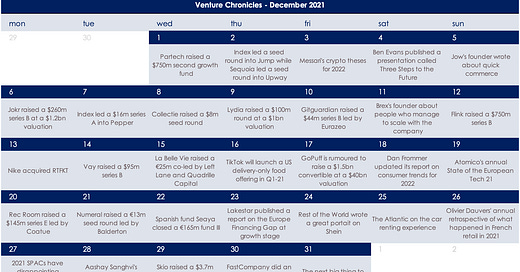





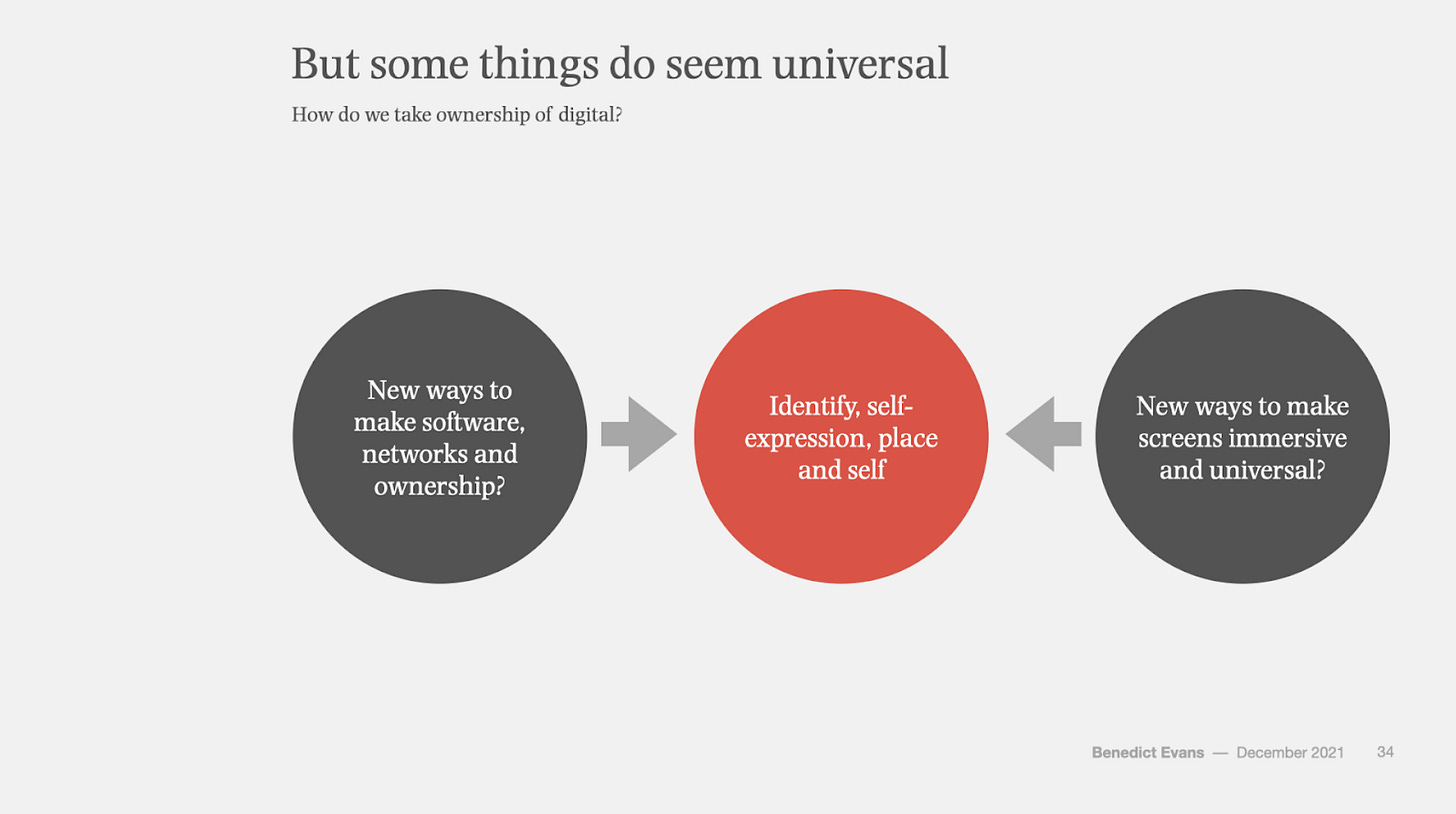
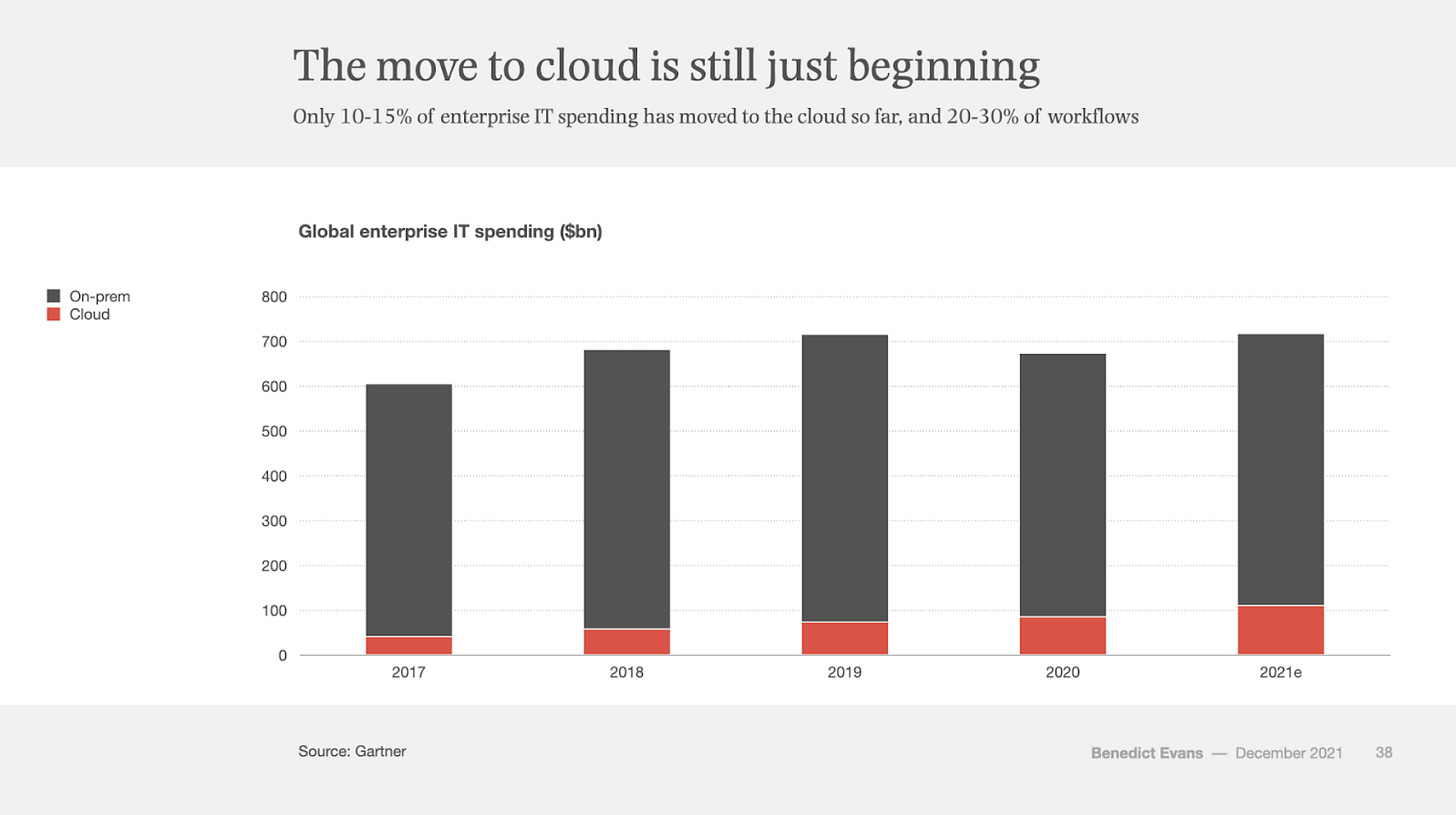



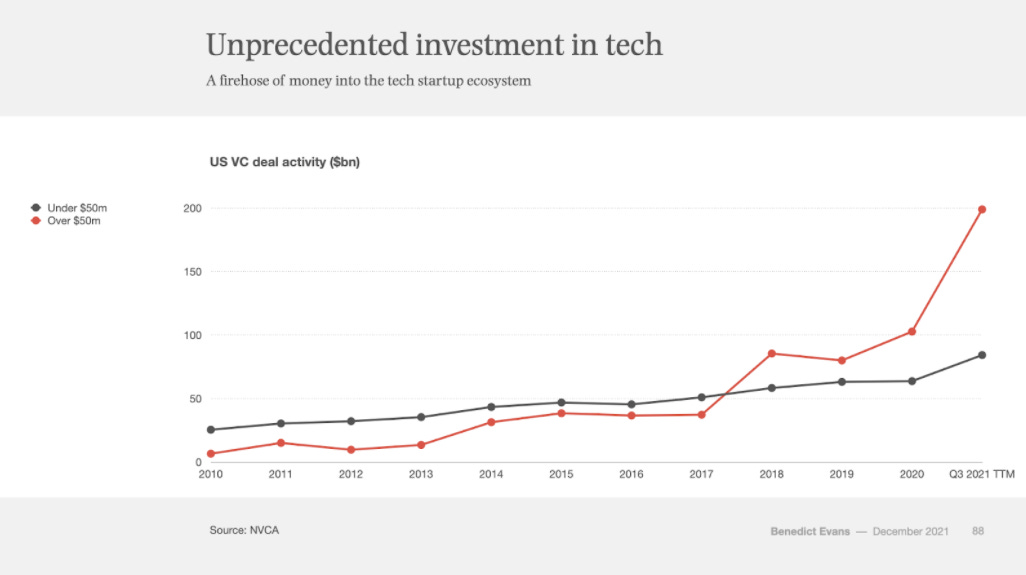


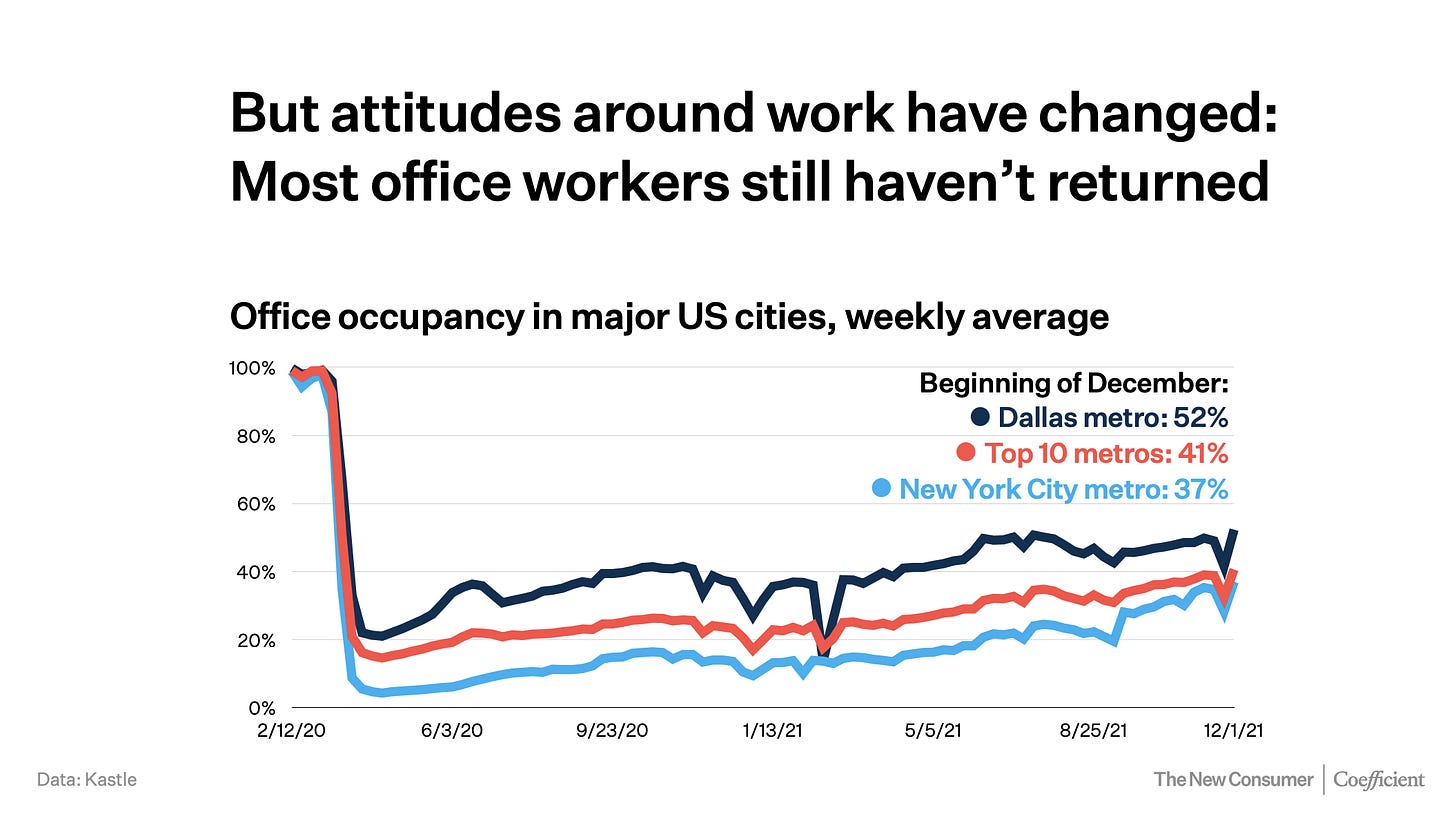


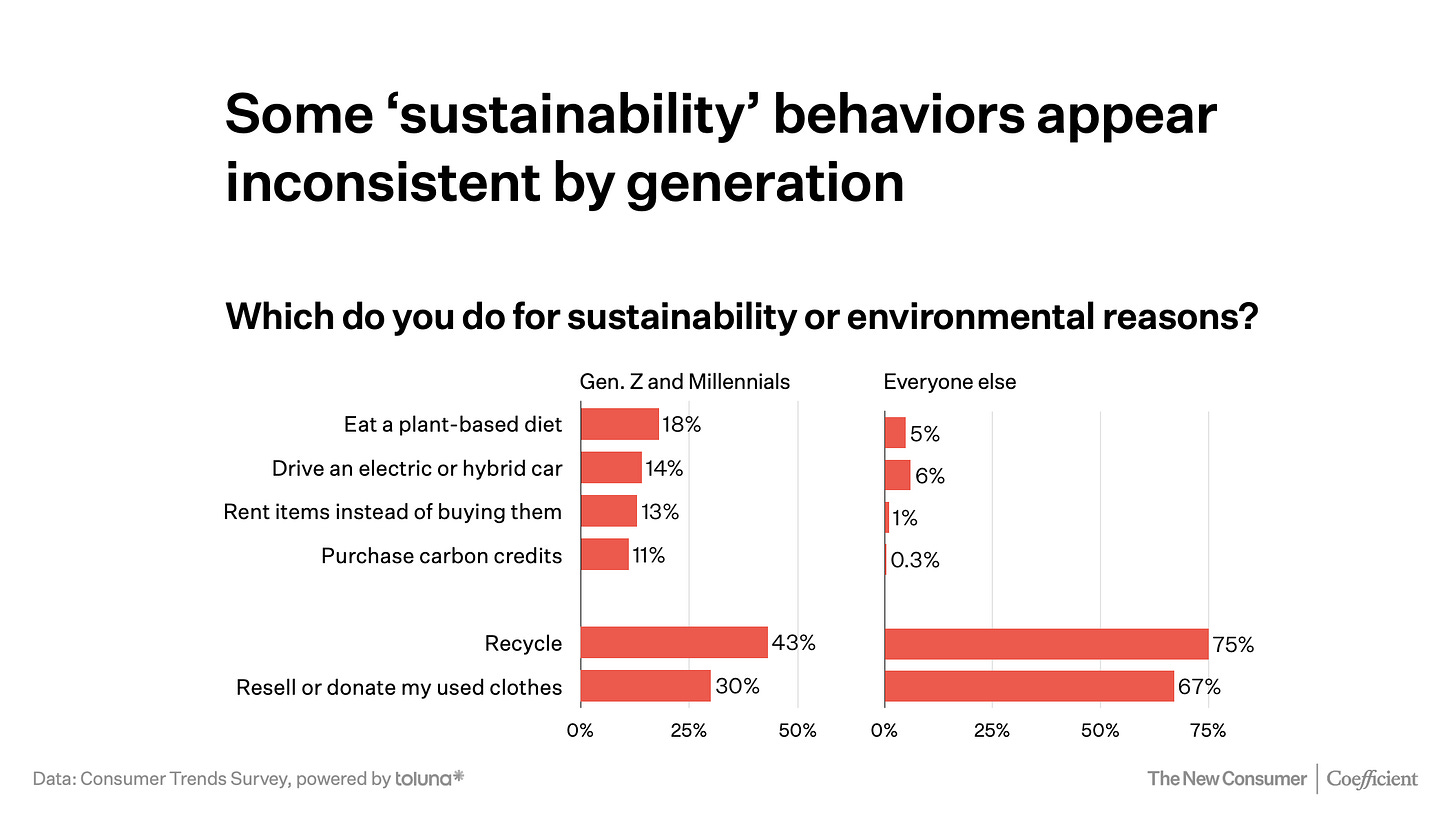








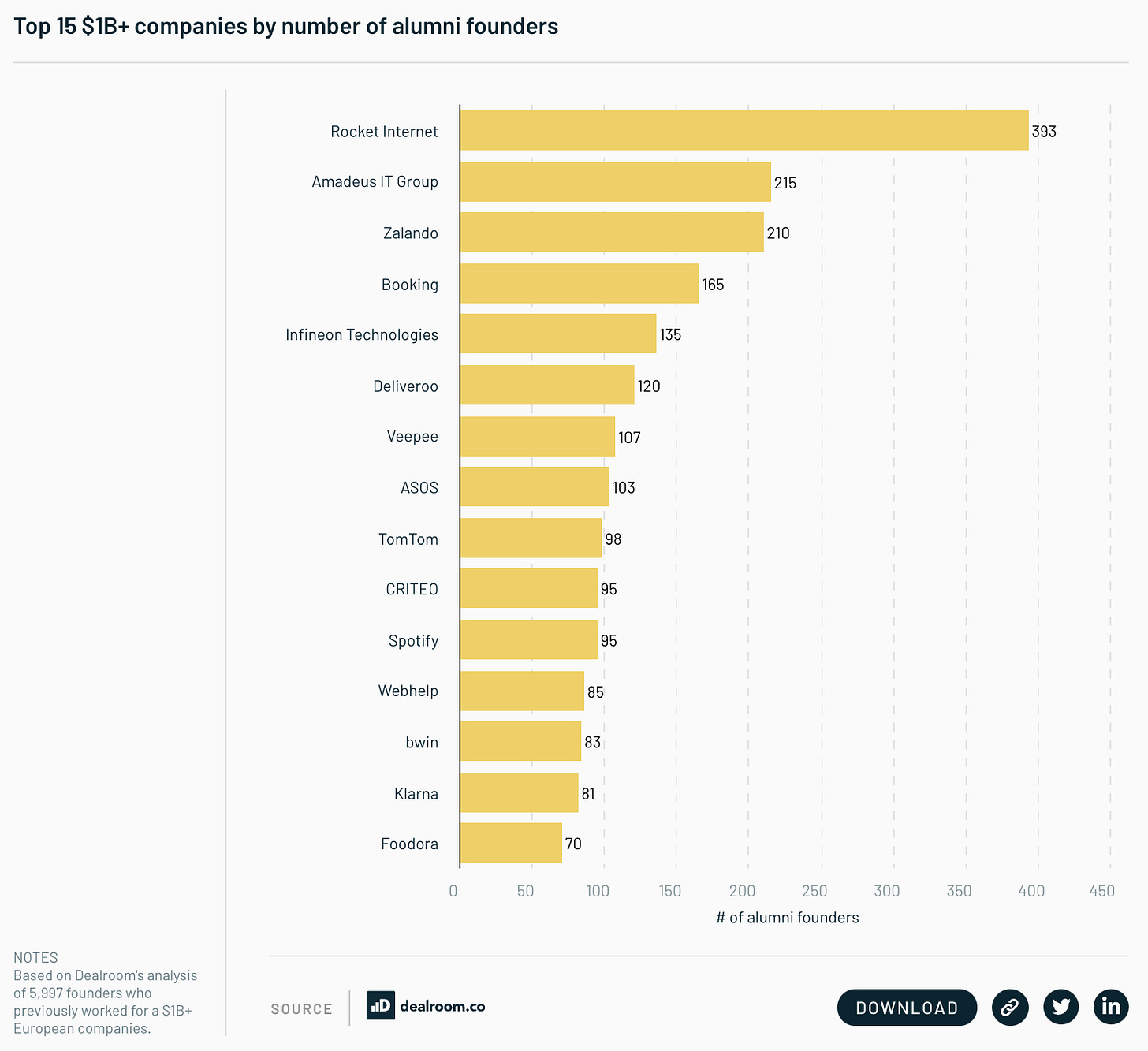
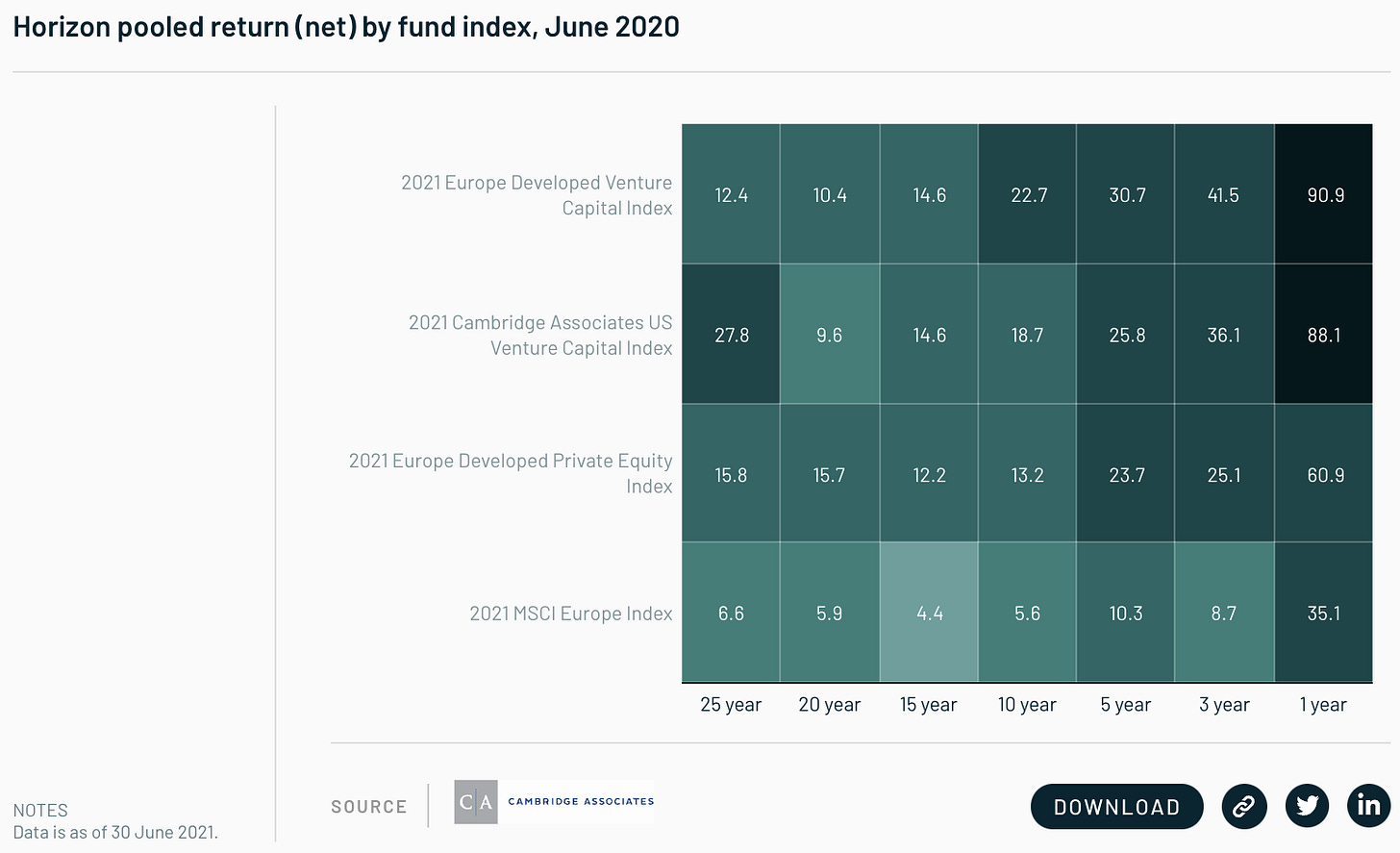


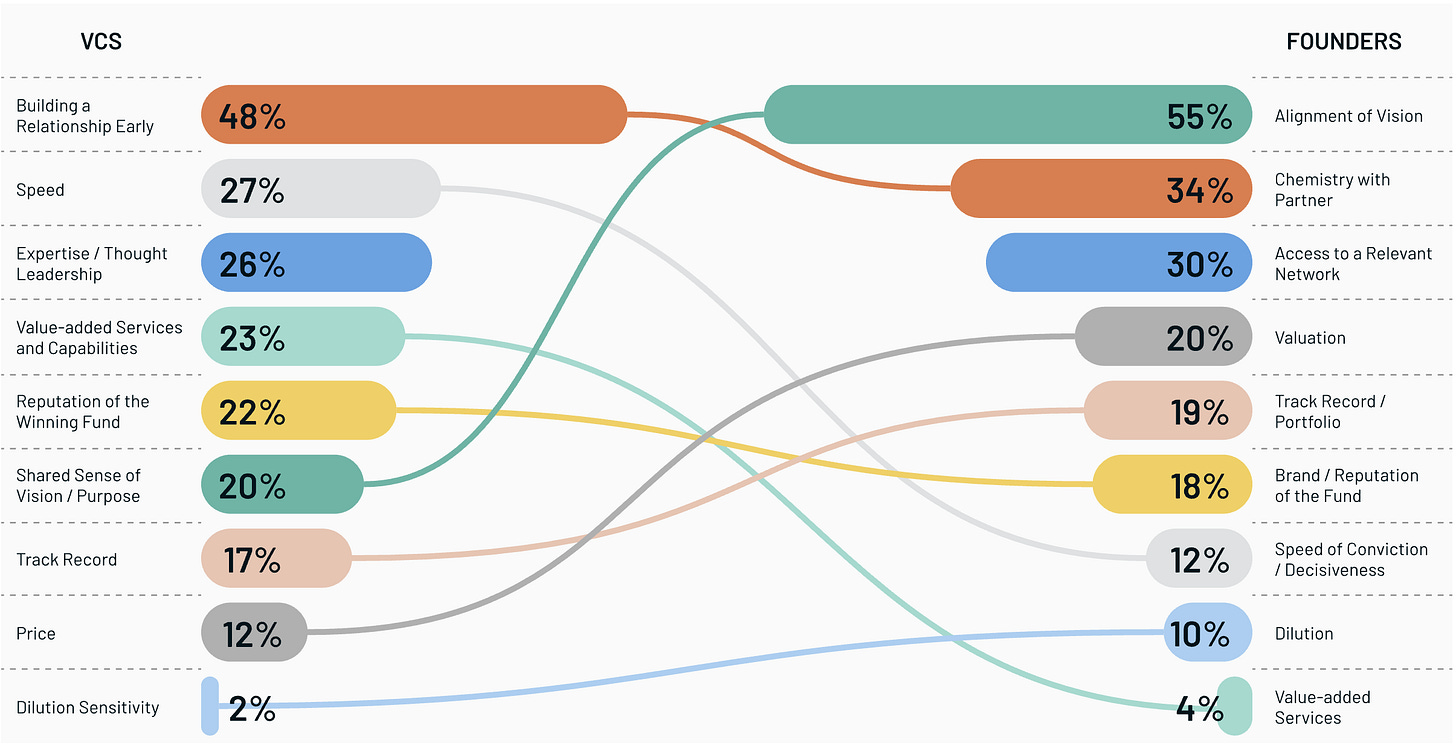
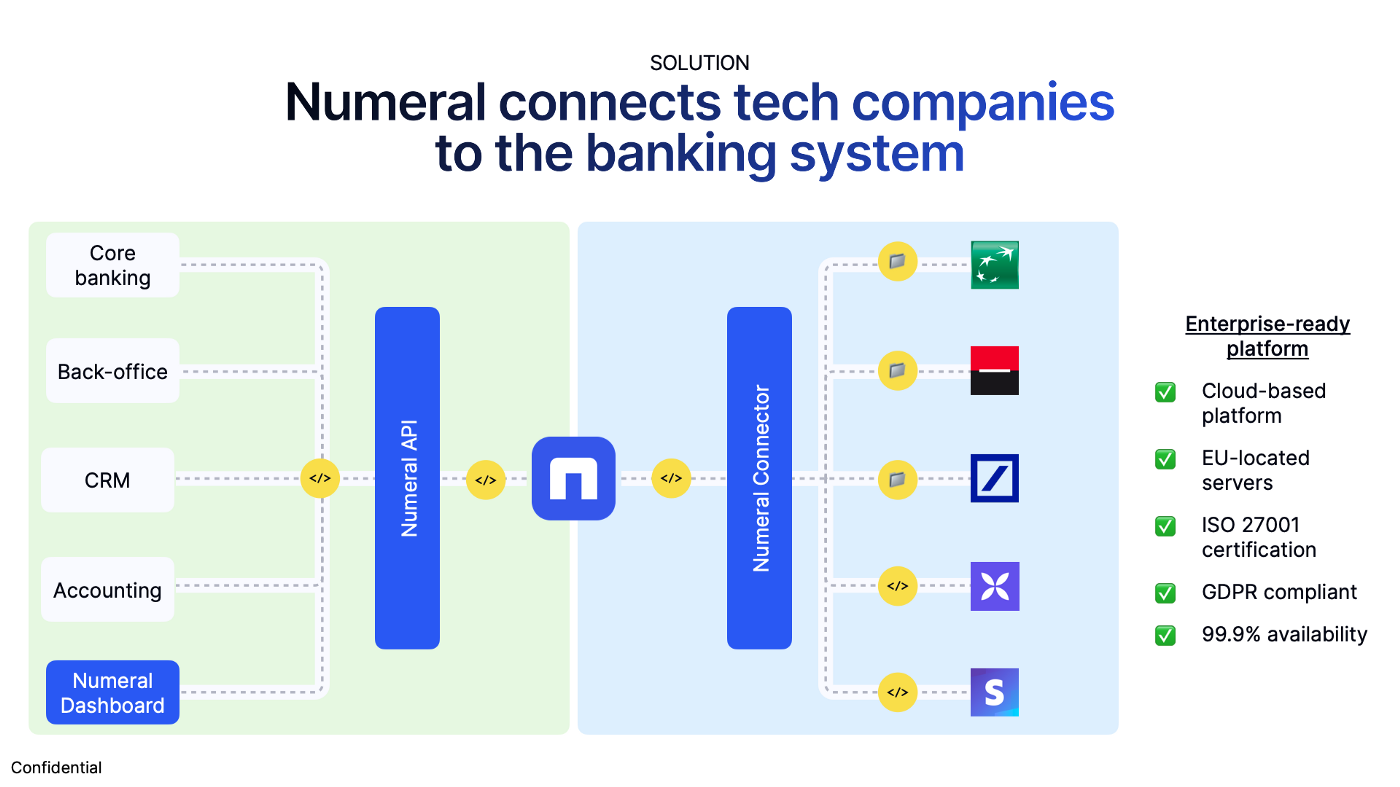





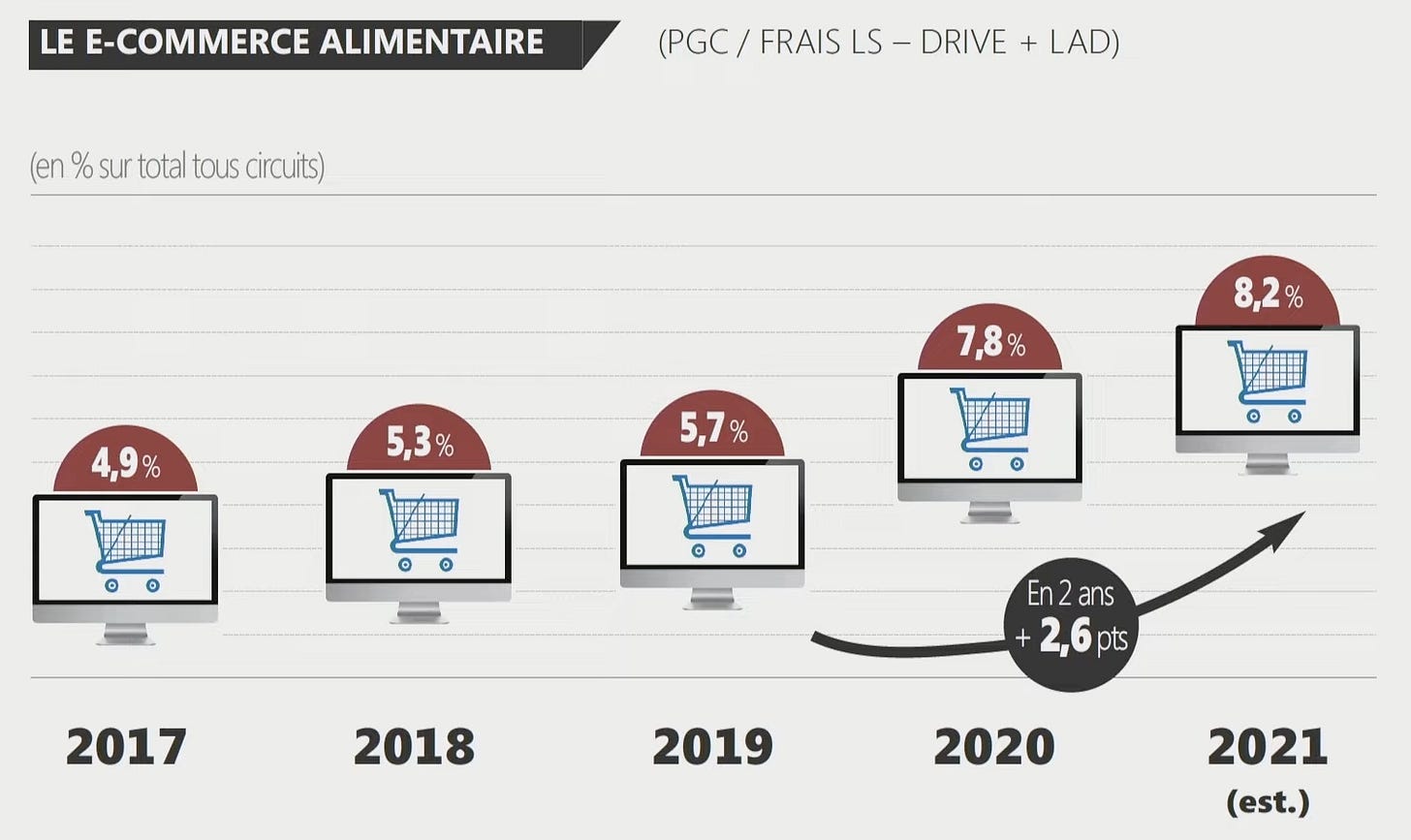


Exceptionnel, comme d'hab !